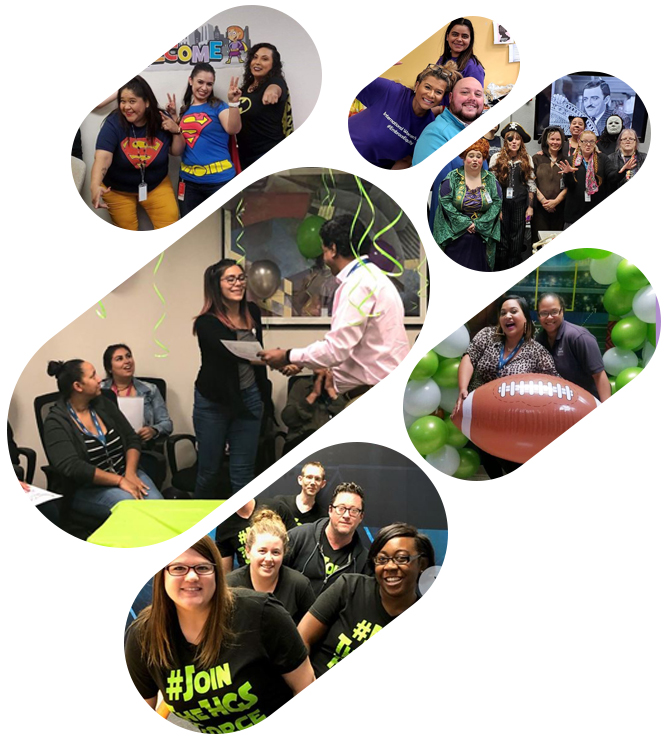Robotic Process Automation (RPA) has emerged as a transformative force in the business world, automating mundane tasks and freeing up valuable human resources for more strategic endeavors. As the demand for RPA solutions continues to grow, so does the need for skilled professionals who can navigate this dynamic field.
Understanding the various RPA developer roles and responsibilities provides a comprehensive insight into the impact they can make on business processes. By harnessing the power of automation, RPA developers contribute significantly to operational efficiency, innovation, and the overall success of organizations in today's rapidly evolving digital landscape. Let’s delve into the intricacies of the role—what does an RPA developer do, how to become one, the required skills, and the diverse responsibilities associated with it.
What is an RPA Developer?
This is the RPA developer job description - an IT professional responsible for designing, developing, and implementing automation solutions using RPA tools. These tools mimic human interactions with digital systems, enabling organizations to streamline their processes and enhance operational efficiency. An RPA developer job role is pivotal to businesses' digital transformation journey. They create software robots that execute repetitive tasks, allowing employees to focus on more complex and strategic activities.
How to Become an RPA Developer

Embarking on a career as an RPA developer requires a combination of education, skills, and practical experience. While there is no strict educational prerequisite, having a background in computer science, information technology, or a related field is advantageous. Many RPA developers hold bachelor's degrees in these disciplines.
Individuals can pursue certifications from reputable RPA providers like UiPath, Blue Prism, or Automation Anywhere to gain a foothold in the field. These certifications validate proficiency in specific RPA platforms and are highly regarded by employers. Additionally, participating in workshops, online courses, and networking events can enhance one's understanding of RPA and provide valuable insights into industry best practices.
The Fundamentals of Robotic Process Automation

Robotic Process Automation implies using technology directed by a pragmatic approach and structured inputs to automate business processes. With RPA tools, an organization can configure software to collect and interpret apps to manipulate data, target responses, and enable communication with other digital systems.
Automation roles range from creating an automatic email response to deploying thousands of bots to ascertain streamlined processes. If these interest you, then you are halfway there to pursue RPA jobs in the USA that would suit your skills and potential.
Skills Set for RPA Developer

A successful RPA developer possesses a diverse skill set beyond programming languages. Here are key skills essential for excelling in this role:
•Programming Skills: Proficiency in languages like Python, Java, or C# is crucial to develop automation scripts and integrate RPA solutions into existing systems.
•Analytical Thinking: RPA developers must analyze complex processes and identify areas where automation can yield the most significant benefits. A keen analytical mind is essential for optimizing workflows.
•Problem-Solving: As automation projects may encounter unforeseen challenges, troubleshooting and solving problems efficiently is a valuable asset for an RPA developer.
•Attention to Detail: Attention to detail is paramount given the precision required in automating tasks. Small errors in the coding or implementation process can have significant consequences.
•Communication Skills: RPA developers collaborate with various stakeholders, including business analysts and end-users. Effective communication ensures a clear understanding of requirements and seamless project execution.
Various Roles of an RPA Developer

The role of an RPA developer extends beyond mere automation. Depending on the organization's size and structure, RPA developers may find themselves in various roles:
•RPA Analyst: RPA Analyst is responsible for understanding business processes, identifying automation opportunities, and working closely with stakeholders to design effective RPA solutions. They ensure the processes in place are sound and drive optimal business efficiency.
•RPA Architect: They are responsible for designing the overall RPA architecture, ensuring scalability, security, and compatibility with existing systems. This is a critical role that helps establish a strong foundation for the rest of the processes.
•RPA Project Manager: An RPA Project Manager is responsible for managing the end-to-end implementation of RPA projects, including planning, execution, and monitoring. This role requires strong project management skills.
•RPA Developer & Engineer: RPA developers are responsible for identifying and designing business processes for automation. They ensure the setting, testing, and monitoring of automated workflows for businesses to perform optimally. RPA developers and engineers look out for potential errors to refine the process and step up to ascertain quality automation using quality assurance.
•RPA Technical Lead
An RPA technical lead’s job is to consistently advise RPA developers and project managers during the work process. They work closely with business units that ensure conformance to governance and processes. They are also responsible for tracking and monitoring RPA automation performances, KPIs, and more. They identify the best practices and implement RPA solutions to ensure the business stays on the growth trajectory.
•RPA Solutions Senior Developer
RPA solutions and senior developers are deployed to develop and maintain RPA scripts. Senior RPA developer roles and responsibilities include offering technical support, maintenance, and configuring the applications to improve the workflow, including quality, user support, and efficient implementation throughout the company. They must discover, develop, implement, and monitor the production in the RPA process.
To assist the team in offering analysis and direction of the process, RPA senior developers have to contribute hugely. With technical expertise, these professionals work to improve RPA scripts through changes in programming or configuration on automated machines.
•RPA Consultant
RPA bot directly interacts with the various third-party apps, which brings the responsibility of the RPA consultant to design, develop, test, and implement. Consultants use the software to identify potential bugs and room for improvement and automation in the current process. It results in fine-tuned performances and operations with no defects and smooth activities. This opens the door for technical minds for robotic process automation consultant jobs that can scale up your skills and abilities.
Responsibilities of an RPA Developer

The day-to-day responsibilities of an RPA developer are diverse and demanding, reflecting the multifaceted nature of the role. RPA lead developer responsibilities may include:
•Process Assessment: Collaborate with business analysts to assess existing processes and identify areas suitable for automation.
•Development: Write, test, and implement automation scripts to execute predefined tasks. This involves working with RPA tools like UiPath, Blue Prism, or Automation Anywhere.
•Integration: Integrate RPA solutions with existing systems, ensuring seamless communication and data flow.
•Testing: Conduct thorough testing of automation scripts to identify and rectify any errors or inefficiencies.
•Documentation: Maintain detailed documentation of automation processes, making it easier for other team members to understand and troubleshoot.
•Continuous Improvement: Regularly assess and enhance existing automation processes to optimize efficiency and adapt to evolving business requirements.
•Collaboration: Work closely with cross-functional teams, including business analysts, project managers, and end-users, to understand their needs and tailor automation solutions accordingly.
•Training: Provide training and support to end-users and other team members, ensuring a smooth transition to automated processes.
Conclusion
HGS US, a leading global provider of customer experience and business process outsourcing services, offers exciting opportunities for individuals seeking a rewarding career in technology. If you're passionate about getting a job in tech and envision a successful career, we provide a dynamic environment where innovation and growth thrive.
The role of an RPA developer is multifaceted and dynamic, requiring a blend of technical expertise, analytical thinking, and effective communication. As businesses in the USA and around the world increasingly embrace RPA to gain a competitive edge, the demand for skilled RPA developers continues to rise.
 US
US Canada
Canada Colombia
Colombia India
India Jamaica
Jamaica Philippines
Philippines UK
UK SA
SA
